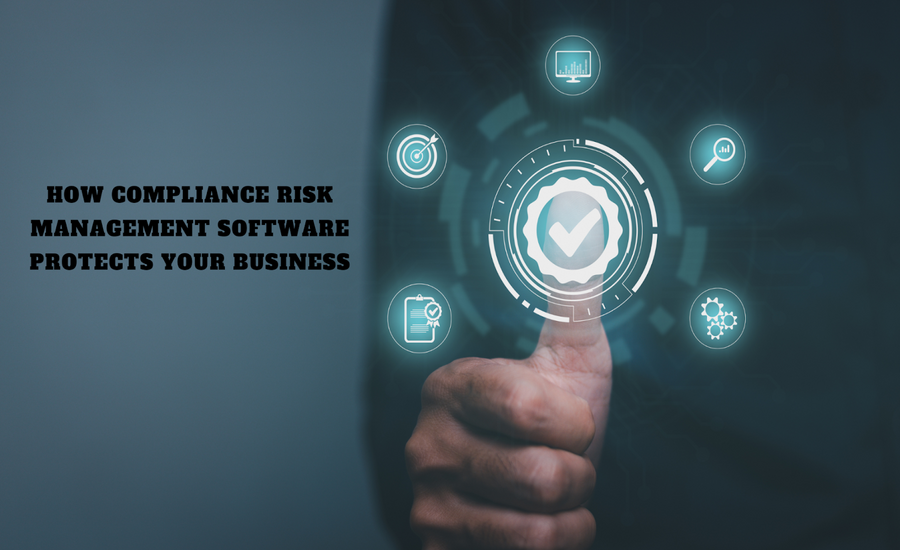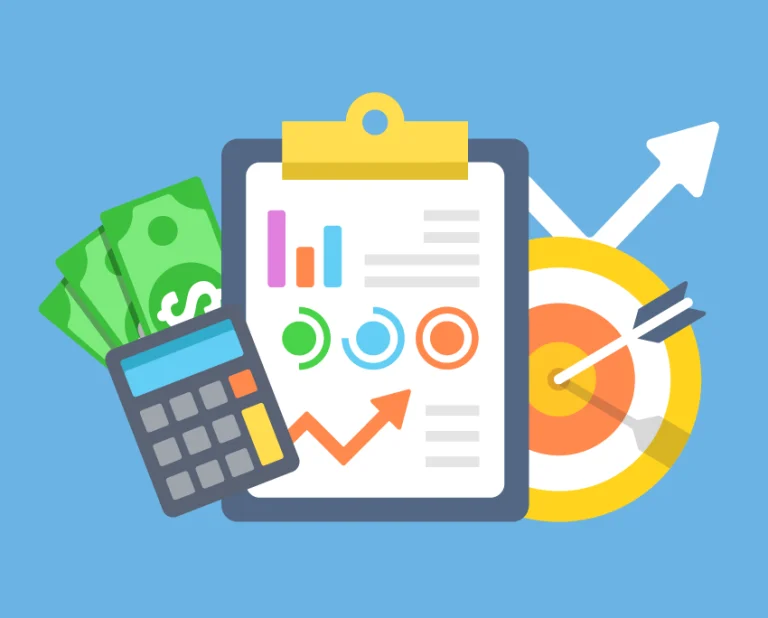How Compliance Risk Management Software Protects Your Business
Staying ahead of regulatory requirements and managing compliance risks are more critical than ever. Today, businesses face an ever-growing challenge to remain compliant. The cost of non-compliance with an average of $14.82 million per incident.
This is where GRC risk management software comes into play, offering a solution to safeguard your business against potential legal and financial pitfalls. This specialized software helps businesses navigate the complex landscape of laws and regulations, ensuring they remain compliant and avoid pitfalls that could lead to significant financial and reputational damage.
The Impact of GRC Compliance Software
Compliance risk management software is more than just a tool; it’s a strategic asset that empowers organizations to identify and address compliance issues. By automating critical processes and providing real-time insights, this compliance risk management software helps businesses stay ahead of regulatory requirements and minimize risks.
The impact of compliance software extends far beyond mere regulatory adherence. It transforms how organizations approach risk management and compliance:
- Cost Reduction: By automating manual processes, compliance software significantly reduces the labor costs associated with compliance management. Organizations can reallocate resources to more strategic initiatives.
- Risk Mitigation: Early detection of grand compliance issues allows businesses to address problems before they escalate, potentially saving millions in fines and penalties.
- Improved Decision-Making: With real-time data and comprehensive reporting, executives can make more informed decisions about risk tolerance and resource allocation.
- Enhanced Reputation: Consistent compliance demonstrates a commitment to ethical business practices, enhancing stakeholder trust and brand reputation.
- Operational Efficiency: Streamlined compliance processes reduce bottlenecks and improve overall operational efficiency, allowing businesses to move faster without compromising on compliance.
- Competitive Advantage: In highly regulated industries, compliance management can become a significant differentiator, potentially opening up new business opportunities.
Businesses can transform compliance from a necessary cost into a strategic advantage, driving growth and stability in an increasingly complex regulatory environment.
Key Features of Compliance Risk Management Software
Automated Monitoring and Alerts
One of the most powerful features of GRC compliance software is its ability to continuously track compliance status and provide proactive alerts for potential issues. 80% of compliance professionals believe that automation is critical to managing compliance risks effectively.
How it works:
- Real-time monitoring of compliance metrics
- Instant notifications for potential violations
- Customizable alert thresholds
Risk Assessment Tools
Identifying and evaluating potential compliance risks is crucial for any business. Compliance software offers sophisticated risk assessment tools that make this process more efficient and accurate. Organizations using risk assessment software are more likely to identify risks before they become issues. Advanced tools, such as contract risk management software, help businesses efficiently track, assess, and mitigate risks associated with contractual agreements. Similarly, contract compliance management software ensures that all contracts are adhered to properly, reducing the likelihood of legal disputes and financial penalties.
Benefits:
- Systematic risk identification
- Prioritization of risks based on severity and likelihood
- Data-driven decision-making for risk mitigation
Document Management and Audit Trails
For businesses struggling to manage compliance-related documents and records, a centralized document management system with comprehensive audit trails is essential. This feature ensures transparency and ease of access during audits.
Key aspects:
- Secure storage of compliance documents
- Easy retrieval of historical data
- Detailed audit logs for all actions
Regulatory Change Management
Keeping up with regulatory changes is a significant challenge, with compliance professionals finding it difficult to stay current. Compliance software addresses this by keeping businesses updated with the latest changes in regulations applicable to their industry.
Advantages:
- Automatic updates on regulatory changes
- Industry-specific compliance tracking
- Reduced risk of non-compliance due to outdated information
Benefits Across Various Industries
Compliance risk management software offers tailored benefits across different sectors, addressing specific regulatory requirements and operational challenges.
1. Healthcare
In an industry where patient data protection is paramount, compliance software helps healthcare providers navigate complex regulations like HIPAA. With the highest average cost of data breaches at $10.10 million, the software’s role in risk mitigation is crucial.
Healthcare organizations benefit from:
- Automated HIPAA compliance checks
- Secure patient data management
- Streamlined reporting for audits
- Real-time alerts on potential privacy breaches
2. Finance
Financial institutions face an average of 200 regulatory changes per day. Compliance software’s ability to provide real-time updates and automated compliance checks is invaluable in this fast-paced regulatory environment.
Key advantages for the finance sector include:
- Automated AML and KYC processes
- Real-time transaction monitoring
- Comprehensive audit trails for regulatory inspections
- Adaptive risk assessment based on changing regulations
3. Technology
As data breaches in the tech industry cost an average of $8.64 million, compliance software’s focus on data protection and privacy regulations is essential for maintaining customer trust and avoiding hefty penalties. By providing real-time monitoring and reporting, a risk and compliance management solution ensures that your business remains up-to-date with evolving regulations and standards.
Tech companies leverage compliance software for:
- GDPR and CCPA compliance management
- Secure handling of user data
- Automated privacy impact assessments
- Vendor risk management for third-party integrations
4. Education
Educational institutions, facing an average of 30 data breaches per year, benefit from compliance software’s robust document management and audit trail features to protect sensitive student information.
In education, compliance software assists with:
- FERPA compliance for student data privacy
- Management of research grants and funding compliance
- Title IX compliance tracking and reporting
- Streamlined accreditation processes
By addressing industry-specific challenges, compliance risk management software not only protects against potential fines and reputational damage but also enhances operational efficiency and stakeholder trust across various sectors.
Integration With Governance, Risk Management, and Compliance (GRC)
Compliance software doesn’t operate in isolation. Its true power is realized when integrated into a broader GRC software. This integration enhances overall organizational effectiveness by providing essential data and insights that inform business decisions and align with organizational objectives. By integrating compliance software into a GRC framework, businesses can achieve:
- Streamlined processes and automated reporting minimize manual efforts and reduce the likelihood of costly errors.
- Unified systems and real-time data access improve workflow and operational productivity.
- Risks and compliance status enable proactive management and strategic planning.
Additionally, integration fosters improved regulatory adherence, better risk management, and a more agile response to regulatory changes. This holistic approach not only secures compliance but also drives long-term business success.
Protecting Your Business Through Compliance
In the realm of compliance, prevention is essential for survival and success in today’s business world. In an era where regulatory compliance is increasingly complex and the costs of non-compliance are soaring, risk management software emerges as a crucial tool for businesses of all sizes.
Statistics speak for themselves: reducing compliance costs by 36% and lowering operational and legal risk costs by nearly 50% show that effective compliance management has a substantial impact. As regulations continue to evolve and multiply, the role of compliance software in safeguarding businesses will only grow in importance.
FAQs:
What is compliance risk management software?
Compliance risk management software is a specialized tool designed to help businesses identify, assess, and mitigate compliance-related risks. It automates many aspects of compliance management, including monitoring, reporting, and document management.
How does compliance software benefit different industries?
Different industries benefit in various ways. For example, healthcare benefits from enhanced HIPAA compliance, while financial institutions gain from real-time regulatory updates. The software adapts to industry-specific regulations and challenges.
Is compliance software suitable for small businesses?
Yes, compliance software is scalable and can be beneficial for small businesses by automating compliance tasks, reducing manual effort, and ensuring consistent adherence to regulations.
How often should a business update its compliance software?
Businesses should regularly review their compliance software to ensure it meets current needs and regulatory requirements, typically on an annual basis or whenever significant regulatory changes occur.






